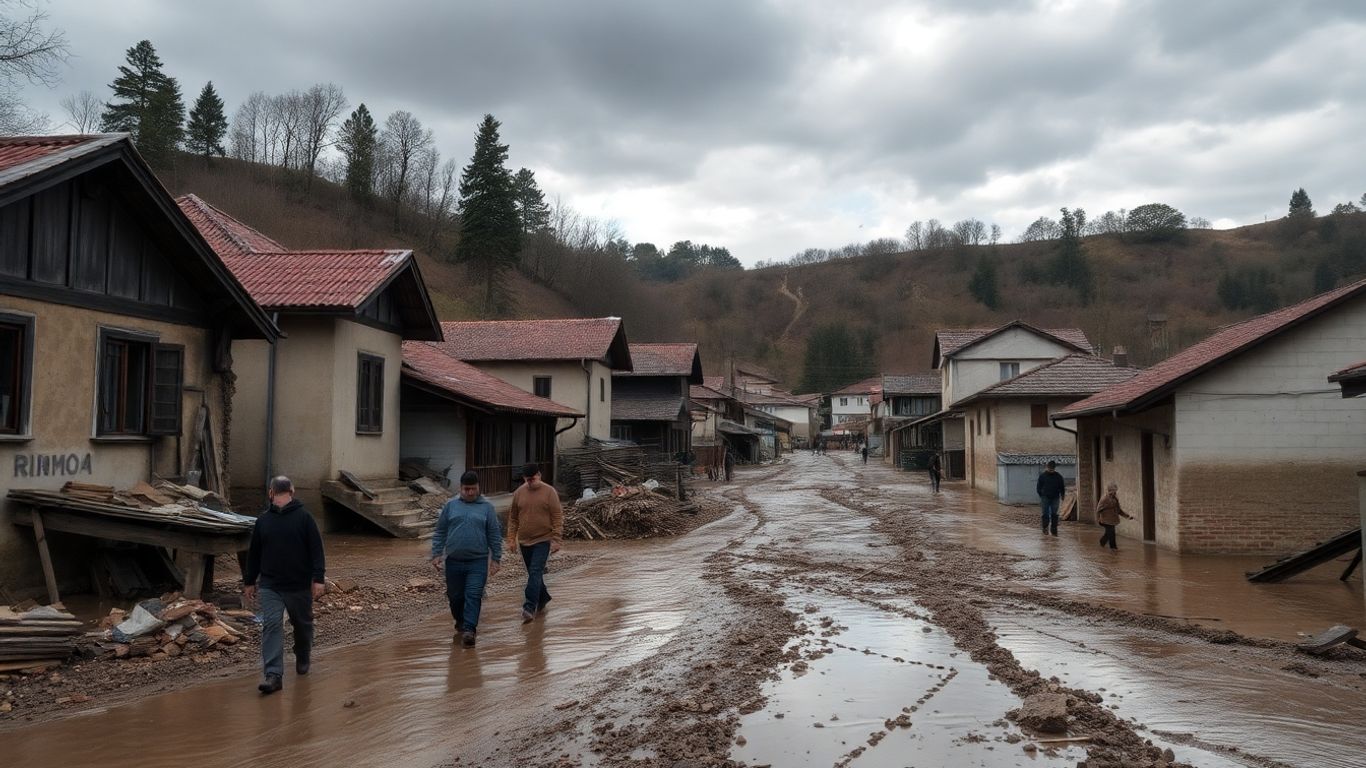On the anniversary of the devastating floods and landslide that struck the village of Donja Jablanica in southern Bosnia, residents and families gathered to remember the 19 lives lost. The disaster, which took place on October 4, 2024, left deep scars—emotional and physical—across the region and raised pressing concerns about disaster response and environmental protection.
Key Takeaways
- On October 4, 2024, Donja Jablanica in Bosnia was ravaged by catastrophic floods and a landslide.
- 19 residents perished; dozens of homes were destroyed or damaged.
- Survivors struggle with trauma, loss, and ongoing investigations into causes and accountability.
Remembering the Victims
This weekend, mourning families and neighbors gathered among photos of the deceased, holding prayers and memorial services beside the ruins of homes that once stood firm. Displaying images of both loved ones and former homes reinforced the community’s loss—nineteen men, women, and children whose lives ended in a matter of minutes as mud, water, and rocks rushed down from nearby hills.
Residents shared memories and sorrow. “It’s not like it was before,” lamented Adisa Maslo, echoing the sentiment of a village profoundly changed by the tragedy. For some, like Fata Jasarevic who lost four relatives, the pain is ongoing, and many say they feel forgotten by authorities and the broader public.
The Night That Changed Everything
The disaster followed intense, torrential rainfall across central and southern Bosnia. In Donja Jablanica, a landslide triggered by waterlogged hillsides and a nearby quarry overwhelmed the village overnight. Entire houses, roads, and vehicles were swallowed by unstoppable mudslides. The destruction was nearly total in some areas.
Jablanica was the worst affected among several impacted municipalities. In total, at least 26 people died region-wide, and damages exceeded 50 million euros.
Survivors’ Struggles and Unanswered Questions
A year later, many survivors are still displaced, living in temporary housing such as container homes hastily erected on the outskirts of the village. Families like the Arfadzans remain in limbo, with lingering trauma and uncertainty about the future.
Investigations into the underlying causes have yielded little. Many locals blame aggressive resource extraction and deforestation around the village for amplifying the disaster. While authorities have launched inquiries into potential negligence or environmental mismanagement, concrete outcomes remain elusive.
Calls for Accountability and Better Preparedness
The disaster’s legacy goes beyond immediate loss. Many in Bosnia are now demanding better land management, stricter regulation of development near vulnerable areas, and improved emergency planning. Community members are concerned that similar disasters could happen again unless lessons are learned and action is taken.
Looking Forward: Healing and Hope
As prayers rise among the gravestones and vacant lots, the people of Donja Jablanica continue striving to heal and rebuild. Their demands for justice and accountability blend with quiet hope—hope that their village, though forever changed, will not be left behind, and that future disasters might be prevented with greater care for both people and environment.
Sources
- A year later, small Bosnian village remembers 19 victims of floods and landslide, Toronto Star.
- A year later, small Bosnian village remembers 19 victims of floods and landslide | Nation World, Temple Daily Telegram.
- A year later, small Bosnian village remembers 19 victims of floods and landslide, Ottumwa Courier.
- A Year On, Bosnia Flood Survivors Still Haunted and Homeless, Balkan Insight.
- Bosnia Floods Anniversary | News, The Killeen Daily Herald.






